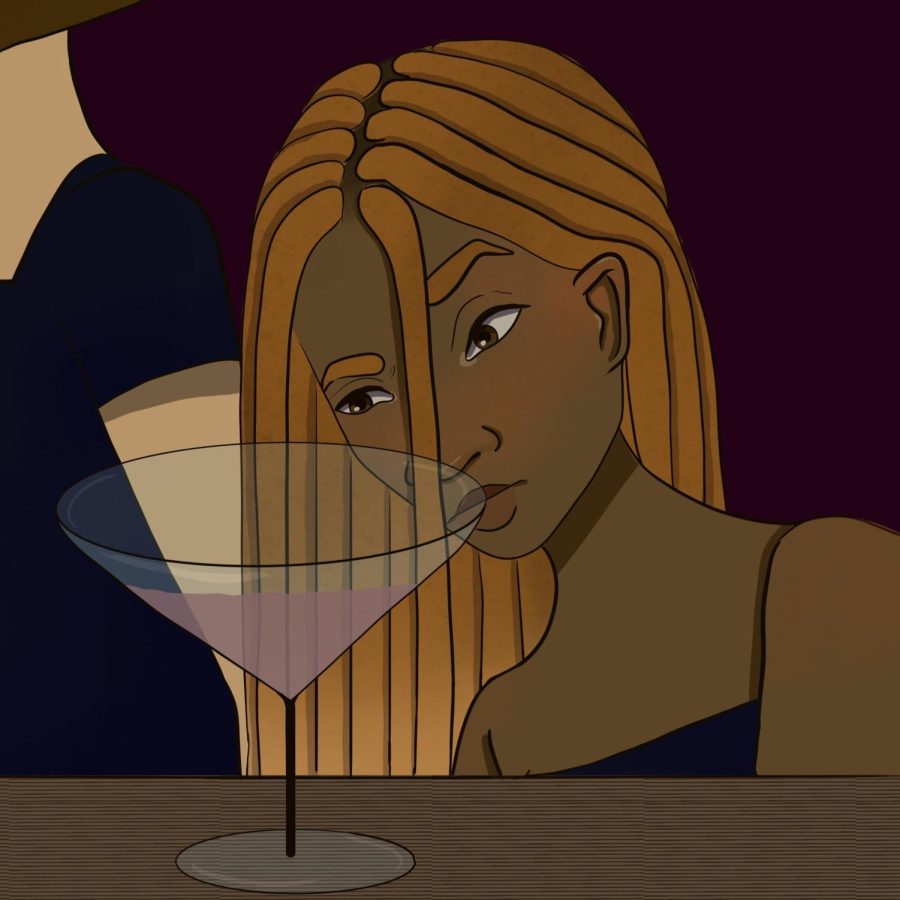Opinion | Why are we weird about who drinks what?
February 21, 2023
I’ll admit, I’m not a huge drinker. Alcohol gives me headaches and makes me sleepy, so I usually won’t have more than one or two drinks in a night. That being said, I’m quite picky about what few drinks I’ll choose, and I usually will opt for a white wine or a cocktail, but only ever one with vodka, rum or tequila.
I am well aware that I have a traditionally feminine taste in alcohol. I have tried so, so hard to like beer and whisky. In the past, I’ve tried to down a beer when it was the last drink available at the function. I’ve even ordered a whisky- or bourbon-based cocktail to try to warm myself up to brown alcohol. I’ve probably wasted hundreds of dollars trying to acquire a taste I simply don’t enjoy. I think my desperate attempts to like beer and whisky speak to how misogyny and gender stereotypes have seeped into the way we enjoy alcohol, from marketing campaigns to representation in the media.
Let’s talk about Bethenny Frankel, former real housewife of New York City and current businesswoman. When she’s not bashing Meghan Markle or reviewing makeup on Tiktok, she is the founder of the brand Skinnygirl, which makes margaritas and wines, among other “healthy” foods and beverages.
I find it fascinating how the primary selling point for Skinnygirl’s margarita and wine is that it’s low-calorie. Sure, a low-calorie option is great for someone on a diet or someone with a condition like PCOS or hypothyroidism, but the fact that it’s very specifically sold to women, and its slogan is “drink like a lady,” just reads as misogynistic. This marketing makes it seem as if thinness is a prerequisite for the adequacy of one’s womanhood. Even the logo is an impossibly skinny female caricature with a perfectly garnished margarita in hand. This alcohol brand markets to women in the way every other product markets to women, which is by attempting to target and alleviate their insecurities.
The best example of this is the landing page before you can enter their website that reads, “sometimes it’s okay to ask a lady her age.” Yet another appeal to women’s insecurities — only this time, it’s not about thinness, but about aging! You can’t shop for a Skinnygirl product without confronting your insecurities because, after all, according to this marketing strategy and countless others, to be a woman is to be cripplingly aware of how ugly and old and fat and saggy you are, even when you’re not. And now that Skinnygirl has reminded you that you’re hideous and decrepit, you can proceed onto their website to buy low-calorie alcohol into which you can drown your sorrows.
The marketing for these gendered beverages has gotten to our heads. We’ve internalized the idea that certain drinks are for certain people, and in doing so, we’ve deemed feminine drinks silly and masculine drinks respectable and hearty. These ideas seep into both our media and our interpersonal culture.
Take the TV show “Scrubs” for example. There is an ongoing joke where JD, the protagonist, loves appletinis. At the 2:29 mark in the video, where JD is on a date with a girl, and she orders a beer, and he orders an appletini. The bartender assumes she ordered the ‘tini and he ordered the beer, and so JD accepts the beer with a deep-voiced “Thanks, bro,” and swaps drinks with the girl while the bartender isn’t looking.
This scene is such a marker of a widespread cultural phenomena I’ve seen time and time again. From an early age, I remember seeing men tease other men for drinking a glass of wine instead of scotch. I’d overhear it at family functions, bar mitzvahs and weddings. I’d even go on to hear it at a frat party where one bro said to another bro, “A White Claw? Awfully fruity of you!”
Fellas, is it gay to drink alcohol?
I think this is a microcosm of a greater issue within sexism. Why are sweetness, deliciousness and palatability — qualities that are associated with the boxes women have learned to squeeze themselves into — inherently shameful? I hate the way our culture mocks femininity, no matter who exhibits it and how they do so. And with that, the drink another person chooses at the bar has absolutely no bearing on anyone else’s quality of life.
Women feed into the yummy drink-shaming, too, displaying their internalized misogyny in the process. Carrie Underwood’s song, “Before He Cheats,” features the lyric, “Right now, he’s probably buying her some fruity little drink ‘cuz she can’t shoot whisky.”
First of all, Miss Underpants, we don’t disparage the other woman –– she didn’t know he had a woman at home. That’s so early 2000s. It’s the man’s fault, although Carrie Underwood does address the man’s wrongdoing later in the song when she smashes his headlights, so never mind.
Why is it a problem that the other woman delights in a fruity little drink? I’ve tried to shoot a whisky before, and I did, in fact, throw up because it’s gross. A woman’s pleasure and comfort should not be shameful, and flexing the fact that you’re so tough because you can shoot whisky only plays into the hands of men who see you as an object anyway. Real “pick me” behavior.
Anyway, this is my message to men — get that fruity little drink. Have a rosé. Encourage your buddies to order the rosé, too –– they’ll probably enjoy it! And to women — if you want a fruity little drink, go get it, and if you want a beer or a whisky, hell yeah, enjoy! I think if we threw away our weird cultural attitudes about who is supposed to drink what, we’d probably find our new favorite drinks. Also, beer tastes like piss.
Paige Wasserman (she/her) writes about the arts, pop culture, campus culture and things that make her want to scream. You can reach her at PLW15@pitt.edu.




